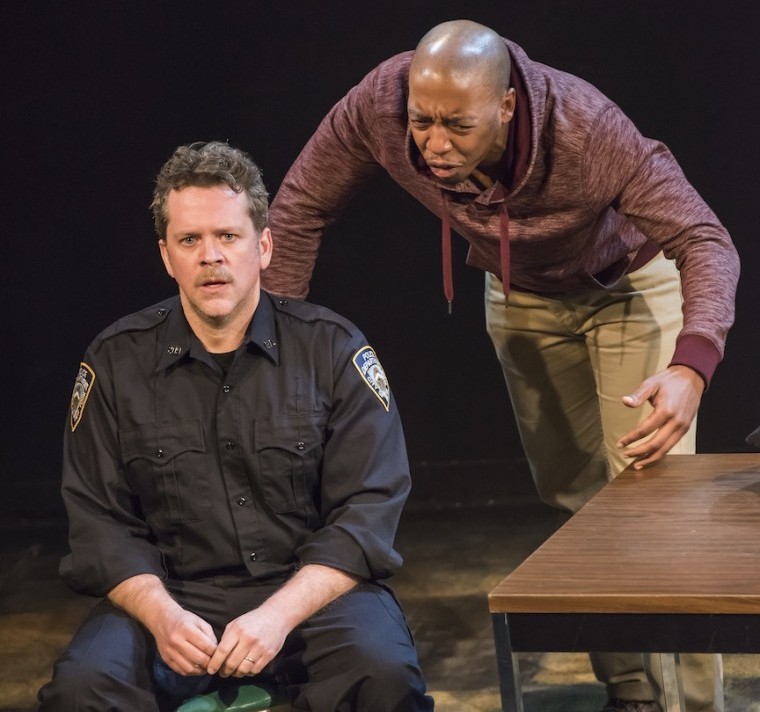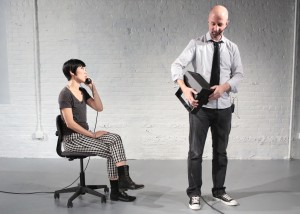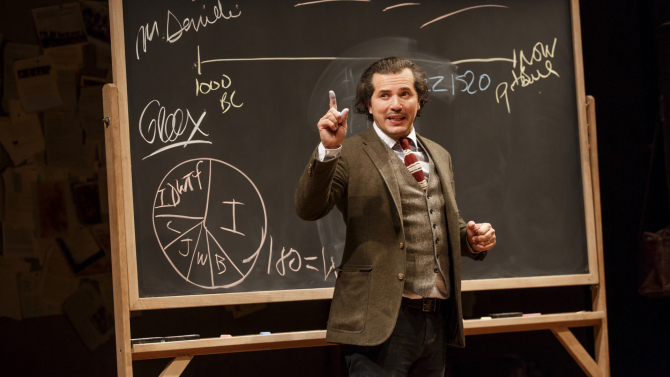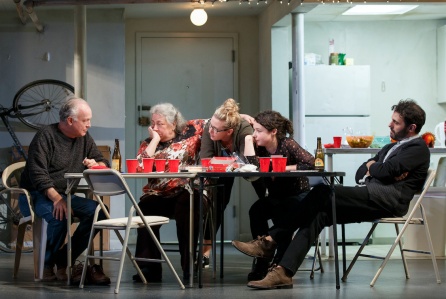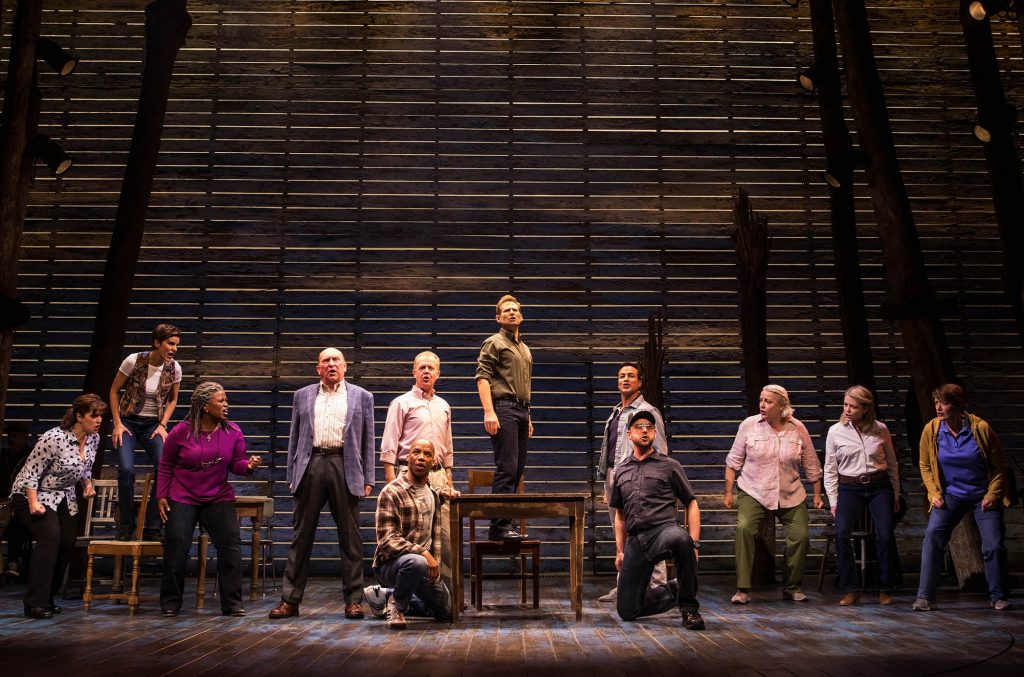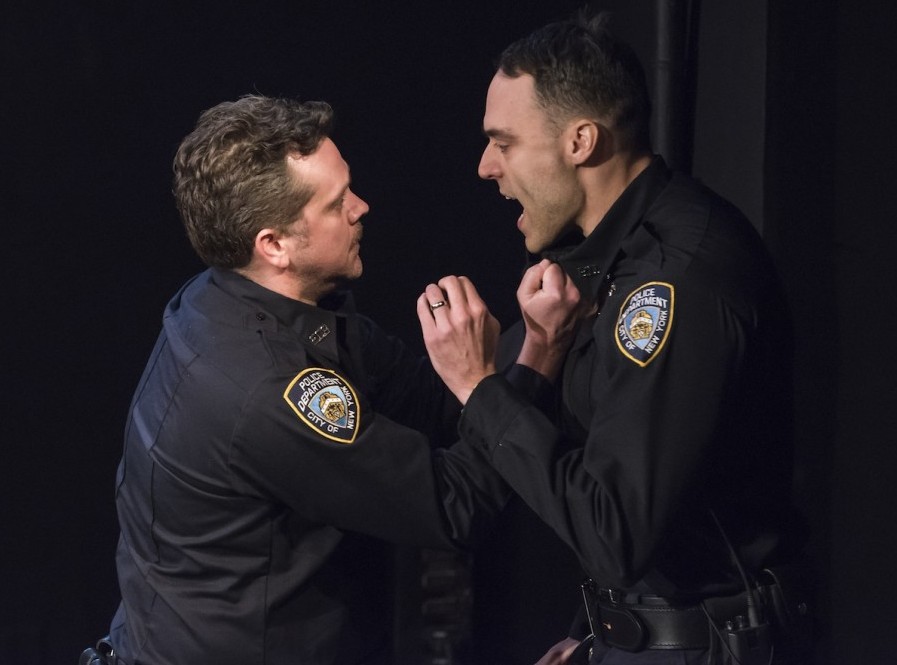

by JK Clarke
Sometimes theater should make you uncomfortable. And it’s usually those uncomfortable plays that have the deepest impact and make you think most seriously the issues at hand. Barry Malawer’s Dead Dog Park, playing through this weekend at 59E59 Theaters is one such production. It’s the story of Rob McDonald (Tom O’Keefe), a cop who is accused of pushing a 13-year-old African American boy out a fourth floor window of the abandoned building he had chased him into (for throwing rocks at him and his partner), though he claims—and we witness the immediate aftermath of the event, which seems to confirm this—he was trying to keep the kid from falling out the window. The unfolding chaos and ruined lives on both sides of the event and the fog of doubt hanging in the air—the permanent did-he-or-didn’t-he uncertainty that eventually nags at him, too—becomes the core of the play.
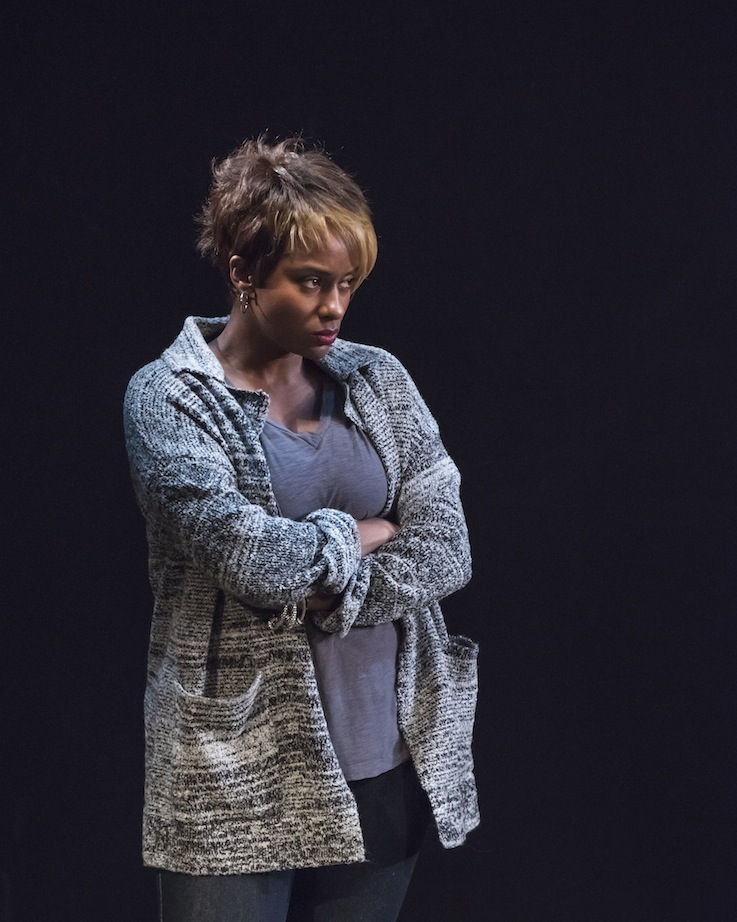

Socially or racially-charged conflagrations like the one in Dead Dog Park are often not quite as clear cut as we would like them to be. At the very least they are blurry around the edges, while at other times they are defined more by ambiguity than anything else. With echoes of Tom Wolfe’s The Bonfire of the Vanities, Officer McDonald is a cop who ends up in the wrong place at the wrong time. Perfectly embodied by Tom O’Keefe who looks every bit the part of New York City cop, he’s not a great guy and probably a little racist . . . but not necessarily malicious. So he has the perfect ingredients to create just enough doubt among the people around him, as well as the jury. Meanwhile, on the other side, Sharonne Chapin (movingly played by Eboni Flowers), the boy’s mother, is hard working, but portrayed as slightly imperfect herself. Her lawyer (Ryan Quinn)—who contacted her after hearing about the case—is a bit of an opportunist and not exactly a good guy either, but he’s a good lawyer (“No, I’m not the best. I’m the loudest.”) who makes sure, right or wrong, that she’s going to get everything she possibly can in this case . . . to the tune of millions.
No one in this play is really a good person . . . nor are they bad. Director Eric Tucker—who’s known for his sublime, award winning work with his Bedlam Theatre Company, most recently the celebrated Sense and Sensibility—along with Malawer, has done a terrific job in making no one in the play truly likeable, though all are sympathetic, which is ideal considering the overall message. Later in the play, by brilliantly turning the entire cast into the prosecuting attorney at trial, all speaking his lines in rapid fire succession, he makes everyone complicit in an unjust system that’s more interested in headlines than truth. Tucker also uses a virtually barren set and no music or sound to intensify the heart-wrenching drama unfolding before us: we aren’t able to escape it, and are very much trapped in the room for each painful moment.
Ultimately the play’s moral comes down to the concept of whether one should be forced to pay for the “sins of our fathers,” a quandry debated since biblical times. While the Bible delivers mixed messages on the subject, it really comes down to whether you are the one who has been historically wronged, or whether it is your people who’ve done the wrong.
You don’t walk away from Dead Dog Park feeling good about what you saw even though what you saw was well done. It handles important issues well and makes you look at them more deeply than you might have when you first sat down in the theater.
Dead Dog Park. Through March 6 at 59E59 Theaters (59 East 59th Street, between Park and Madison). www.59e59.org
*Photos by Ashley Garrett


